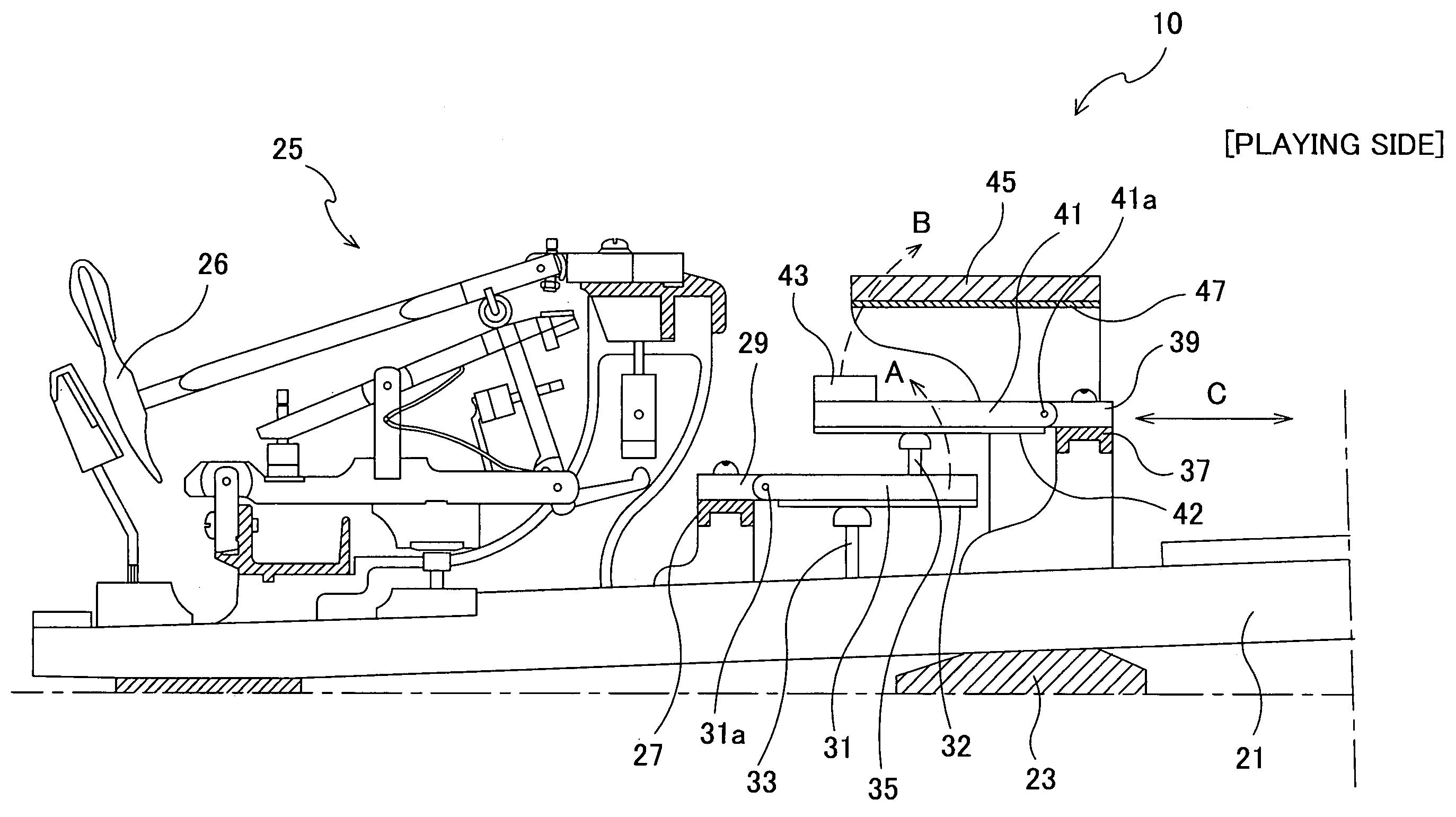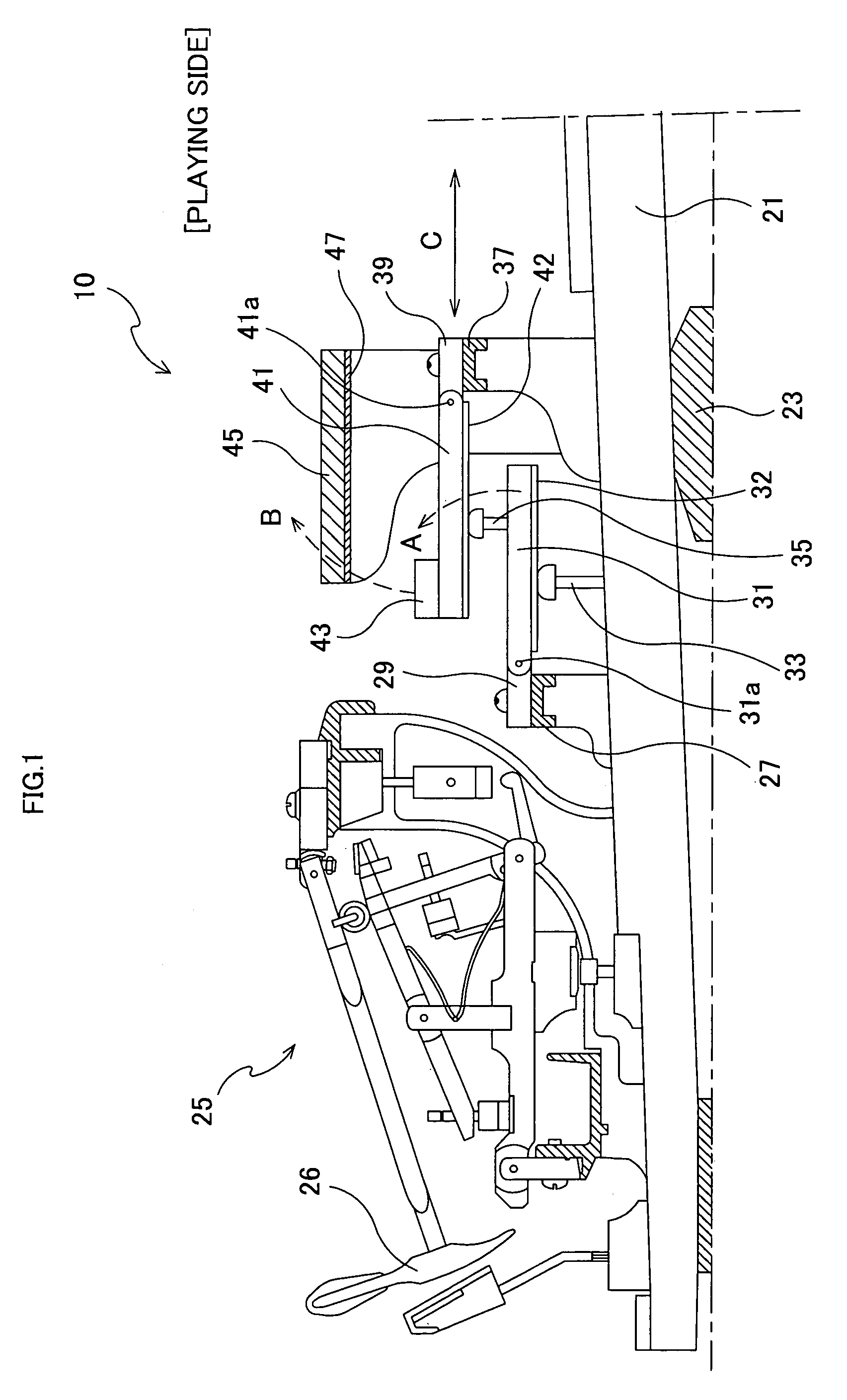String-striking device for piano
a string-striking device and piano technology, applied in the field of strings-striking devices for pianos, can solve problems such as the change of the distance between the contact point, and achieve the effects of increasing static load, efficient transmission of key motion, and a lot of flexibility in shap
- Summary
- Abstract
- Description
- Claims
- Application Information
AI Technical Summary
Benefits of technology
Problems solved by technology
Method used
Image
Examples
Embodiment Construction
[0017]An embodiment of the present invention will be described below, by way of the drawing. The present invention is not limited to the below embodiment, and other modifications and variations may be possible within the technical scope of the invention.
[0018]FIG. 1 is a side view showing a string-striking device 10 for a grand piano. As shown in FIG. 1, the string-striking device 10 mainly includes a key 21, an action portion 25, a first weight lever 31, a second weight lever 41, and a stopper rail 45.
[0019]The piano has a total of 88 individual keys 21. Each key 21 is arranged to pivot on an intermediate plate 23 acting as a fulcrum. When a key 21 is depressed, the side opposite (action side) to the playing side of the key 21 is raised to transmit the key depression to the action portion 25. When the key depression is transmitted to the action portion 25, string-striking operation is performed in which a hammer 26 provided in the action portion 25 hits a string (not shown).
[0020]T...
PUM
 Login to View More
Login to View More Abstract
Description
Claims
Application Information
 Login to View More
Login to View More - R&D
- Intellectual Property
- Life Sciences
- Materials
- Tech Scout
- Unparalleled Data Quality
- Higher Quality Content
- 60% Fewer Hallucinations
Browse by: Latest US Patents, China's latest patents, Technical Efficacy Thesaurus, Application Domain, Technology Topic, Popular Technical Reports.
© 2025 PatSnap. All rights reserved.Legal|Privacy policy|Modern Slavery Act Transparency Statement|Sitemap|About US| Contact US: help@patsnap.com


